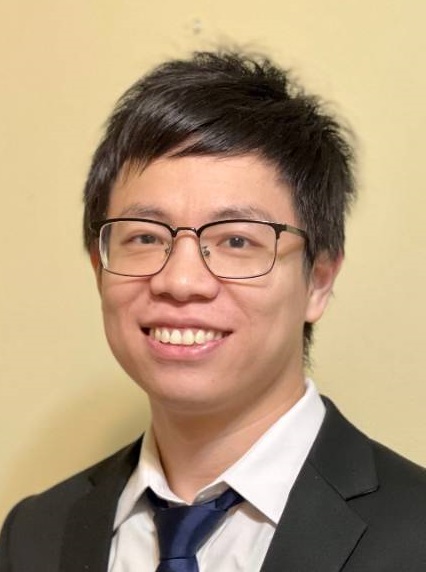
Shungeng Zhang
Assistant Professor

Shungeng Zhang
Assistant Professor
Academic Appointment(s)
Administration
Department of Computer & Cyber Sciences
School of Computer and Cyber Sciences
Department of Computer & Cyber Sciences
Administration
Department of The Graduate School
Bio
I am an assistant professor of Computer Science in the School of Computer and Cyber Sciences at Augusta University. I received my Ph.D. degree in Computer Science from Louisiana State University in 2021. Before that, I received my B.E. degree from Huazhong University of Science and Technology in 2014.
- SZHANG2@augusta.edu
- UH 102A
- Personal Website
Education
-
Ph.D., Computer Science. Louisiana State University Hea, 2021
-
BENG, Computer Engineering, General Huazhong University of Science, 2014
Courses Taught Most Recent Academic Year
-
CSCI 8940
Dissertation Research
-
AIST 4720
Enterprise System Architecture
-
CSCI 8510
Independent Study: Fdn of Medical Image Analytics
-
AIST 3310
Advanced Networking
Teaching Interests
My teaching philosophy is grounded in connecting foundational principles with cutting-edge applications, an approach refined through six years as a graduate teaching assistant at LSU. I have directly supported student learning in seven distinct courses, ranging from core undergraduate classes such as Data Structures and Database Management Systems to advanced topics like Cloud Systems.
This hands-on experience, combined with my research in large-scale web applications, allows me to bring real-world relevance into the classroom. I am passionate about demystifying complex systems and am prepared to develop and teach a wide range of courses at both the undergraduate and graduate levels.
Beyond standard curricula, I am particularly interested in developing seminar-style courses that incorporate influential research. My goal is to foster a critical and inquisitive environment, preparing students not just with knowledge, but with the skills to engage with the future of computing.
Scholarship
Selected Recent Publications
- DARD: Dice Adversarial Robustness Distillation against Adversarial Attacks, 2025
Journal Article, Academic Journal - Adversarial Attacks on Large Language Models, 2024
Book, Chapter in Scholarly Book-New - Different attack and defense types for AI cybersecurity, 2024
Conference Proceeding - $\mu$ConAdapter: Reinforcement Learning-based Fast Concurrency Adaptation for Microservices in Cloud, 2023
Conference Proceeding - Sora: A latency sensitive approach for microservice soft resource adaptation, 2023
Conference Proceeding
Research Interests
My research interests lie in the field of distributed systems, cloud computing, and cybersecurity, which focuses on improving the performance and scalability of large-scale web applications and IoT stream processing systems to simultaneously achieve both good performance and high resource utilization efficiency in the cloud.
In my research, I actively adopt sophisticated timeline analysis methods with fine-grained monitoring data to find and study the transient bottlenecks which could lead to the long tail latency problem of the web-facing applications in the cloud. The transient bottlenecks (even with a very short lifespan such as 50ms) could lead to significant performance loss caused by the propagation and amplification effect, which is due to the complex dependency chains among components in web-facing applications. By correlating the transient bottlenecks with observed system performance metrics (e.g., throughput and load), the system can identify and remove the transient events which cause transient bottlenecks and bring better scalability and elasticity to web applications in the cloud.
Department Service
-
CSRankings Coordinator 2024 - 2026
Role: Other
-
Faculty Assembly 2021 - 2022
Role: Attendee, Meeting
-
Faculty Interviewer 2021 - 2022
Role: Other
University Service
-
Athletics Committee 2025 - 2026
Role: Committee Member
-
Curriculum and Academic Policies Committee 2025 - 2026
Role: Committee Member
Professional Service
-
ACM Symposium on Cloud Computing (SoCC' 23) 2023 - Present
Role: Reviewer, Conference Paper
-
ACM Transactions on Internet Technology (TOIT) 2023 - Present
Role: Reviewer
-
International Conference on Smart Computing and Communication (SmartCom 2023) 2023 - Present
Role: Reviewer, Conference Paper
-
The Journal of Supercomputing 2023 - Present
Role: Reviewer
-
ACM Symposium on Cloud Computing (SoCC' 22) 2022 - Present
Role: Reviewer, Conference Paper